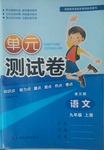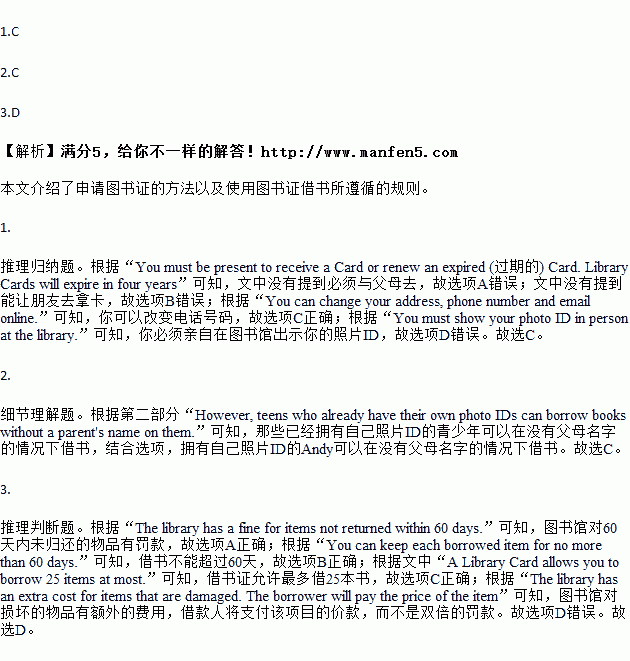题目内容
Library Cards are free to all citizens in California. They allow you to borrow books, magazines, CDs and DVDs from our library. They also allow you to use the computers at the library.
Click here to ask for a Card
You must show your photo ID in person at the library.
You must be present to receive a Card or renew an expired (过期的) Card. Library Cards will expire in four years.
You can change your address, phone number and email online.
Tell us at once if your Card is lost or stolen. You are responsible for all items checked out on your Card.
Cards for kids and teens
On the cards, the name of a parent is needed for children (aged 13 and under). The parent must also provide a photo ID. Teens (aged 14 to 17) use the same way. However, teens who already have their own photo IDs can borrow books without a parent's name on them.
Borrowing items
A Library Card allows you to borrow 25 items at most. You can keep each borrowed item for no more than 60 days.
The library has a fine for items not returned within 60 days. The fine for books and magazines is $1.00 each a day. The fine for CDs and DVDs is $ 2. 00 each a day.
The library has an extra cost for items that are damaged. The borrower will pay the price of the item.
1.What can we infer from the "Click here to ask for a Card" part?
A.You must go to the library with your parent.
B.You can ask your friends to get the card for you.
C.You can change your phone number left on your Card.
D.You may send your photo ID to the library.
2.Who doesn't need to have a parent’s name on the Card?
A.10-year-old Tim. B.13-year-old Joe.
C.14-year-old Andy, with a photo ID. D.16-year-old Ted, without a photo ID.
3.Which of the following is WRONG according to the information?
A.You will be fined if you don't return your borrow items after expiring.
B.You should return each of your borrowed items within two months,
C.You can use your Library Card to borrow 25 items at most.
D.If you damage your borrowed items you have to pay the double price of them.
 阳光试卷单元测试卷系列答案
阳光试卷单元测试卷系列答案
